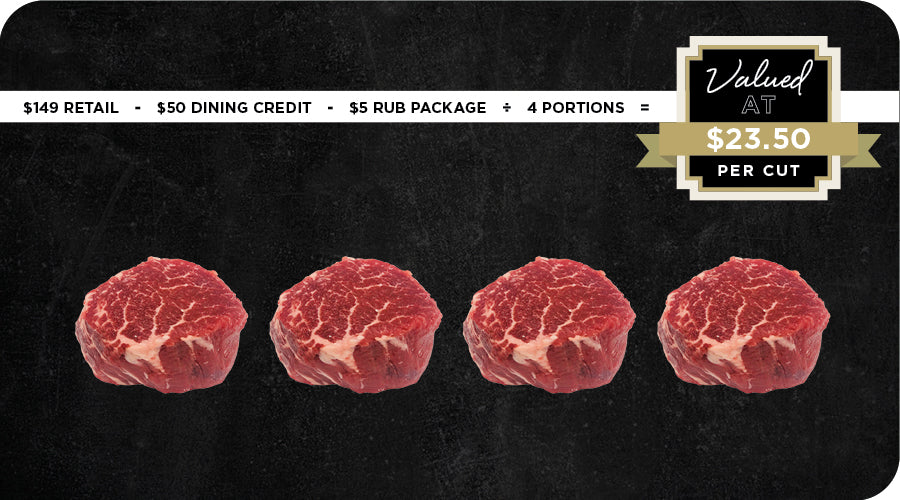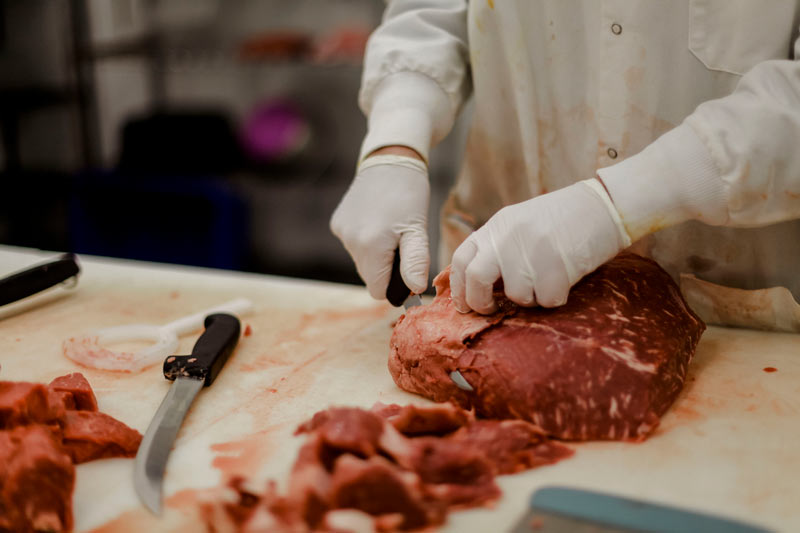Why Buying at a Regional Meat Market Guarantees Fresh, High-Quality Cuts
Buying at a local meat market offers distinct benefits that frequently go unnoticed by customers accustomed to larger retail chains. The implications of selecting neighborhood expand beyond prompt advantages, motivating a closer examination of what this choice really indicates for both customers and the local economy.
Benefits of Regional Sourcing
In the realm of food procurement, the benefits of regional sourcing stick out prominently. By acquiring meat from neighborhood markets, consumers obtain straight access to items that are usually fresher and a lot more savory than those located in larger, industrial grocery stores. Regional sourcing decreases the moment and range food travels from farm to table, which not only improves taste but also preserves dietary worth.

Furthermore, local sourcing typically offers transparency regarding the origins of the meat. Consumers can inquire about the farming methods utilized, animal welfare criteria, and whether the meat is grass-fed or organic. This details encourages shoppers to make enlightened choices straightened with their worths.
Quality Assurance Specifications
Local meat markets typically stick to rigorous top quality control requirements that make sure the products used fulfill high safety and security and freshness standards. These standards normally incorporate various stages of the meat manufacturing procedure, from sourcing to taking care of and storage space.
First, neighborhood markets frequently develop stringent supplier criteria, making sure that just trustworthy farms and producers are utilized - bagley meat market edwardsville il. This lowers the probability of contamination and promotes greater animal well-being standards. Additionally, numerous neighborhood meat markets execute routine assessments to verify that the meat is processed under hygienic problems, even more reducing wellness risks
Temperature level control is another crucial facet of quality assurance. Neighborhood meat markets regularly keep track of refrigeration systems to keep ideal storage space temperature levels, making certain that meat stays fresh and safe for usage. The implementation of traceability systems allows markets to track the origin of their items, providing openness and accountability.
Finally, personnel at neighborhood meat markets are often trained to recognize indicators of putridity and recognize correct handling techniques. This dedication to quality assurance not only elevates the general standard of the meat but also fosters customer depend on, making neighborhood meat markets a dependable resource for premium cuts.
Supporting Neighborhood Farmers
Supporting regional farmers is crucial for cultivating a sustainable food system and improving community durability. When consumers pick to patronize regional meat markets, they straight add to the source of incomes of farmers in their area. This not only sustains the regional economic situation however also reinforces the agricultural field, making certain that it remains dynamic and viable.


Furthermore, supporting regional farmers promotes a feeling of community and link in between manufacturers and consumers. It motivates openness in food sourcing and imparts depend on, as customers can develop partnerships with the people that elevate their food. This straight link ultimately causes an extra involved and educated public, which is critical for promoting for lasting agricultural practices in the check out here future.
Sustainable Practices
Lasting techniques in meat markets play an essential duty in promoting ecological stewardship and guaranteeing animal well-being. Neighborhood meat markets often prioritize sourcing their items from ranches that carry out honest and sustainable farming methods. These methods consist of rotational grazing, which helps keep dirt wellness and reduces carbon emissions, alongside reducing using antibiotics and hormones in animals.
Moreover, regional meat markets generally highlight openness in their supply chains. Customers are offered with details pertaining to the origin of their meat, allowing them to make enlightened choices that align with their values. By sustaining neighborhood farmers that practice sustainable techniques, consumers add to the conservation of biodiversity and the decrease of transportation emissions associated with long-distance meat circulation.
Additionally, lots of local meat markets participate in waste reduction approaches, such as using every part of the animal and promoting off-cuts that may otherwise go unsold. By fostering a much more lasting technique to meat usage, these markets not just supply high-grade products yet additionally contribute positively to the setting and pet well-being. Essentially, purchasing at a regional meat market straightens consumers with a wider motion towards accountable and ethical food sourcing.
Customized Client Service
Buying at a meat market usually encompasses even more than simply the items supplied; it is likewise about the experience and the partnerships developed in between clients and staff. Individualized customer care is a characteristic of local meat markets, establishing them in addition to bigger grocery chains. Experienced staff make the effort to understand individual client choices, making sure that each visit is customized to details requirements.
Clients benefit from professional advice on go cuts, food preparation methods, and prep work tips, cultivating a sense of trust fund and commitment. helpful resources This tailored communication allows consumers to ask concerns and look for referrals, leading to informed buying choices. Team member commonly keep in mind routine clients and their preferences, producing a welcoming atmosphere that cultivates community ties.
Furthermore, tailored solution extends to special requests, such as customized cuts or particular prep work approaches, which larger stores may not fit. This level of attention strengthens the commitment of local meat markets to quality and consumer fulfillment.
Basically, individualized customer solution not just improves the purchasing experience however likewise makes sure that clients entrust to the most effective items fit to their cooking demands, making every check out a satisfying one.
Conclusion
To conclude, buying at a regional meat market offers numerous benefits, consisting of premium freshness and high quality due to decreased traveling times. Rigid quality control procedures boost openness and ensure high criteria for products. Sustaining local farmers fosters neighborhood partnerships and strengthens the neighborhood economy, while sustainable practices contribute to ecological stewardship. Furthermore, customized customer care enhances the purchasing experience, making regional meat markets a preferred selection for consumers looking for both quality and ethical factors to consider in their food sourcing.
The effects of selecting local expand beyond prompt advantages, triggering a better assessment of what this selection really means for both customers and the local economy.
Supporting local meat markets likewise adds to the neighborhood economic situation. Neighborhood meat markets often check refrigeration systems to preserve optimal storage space temperature levels, making certain that meat continues to be safe and fresh for consumption.Neighborhood farmers are typically extra attuned to the specific needs of their neighborhoods, expanding crops and raising animals that line up with neighborhood preferences and choices. Sustaining regional farmers fosters community partnerships and reinforces the neighborhood economy, while sustainable practices contribute to environmental stewardship.